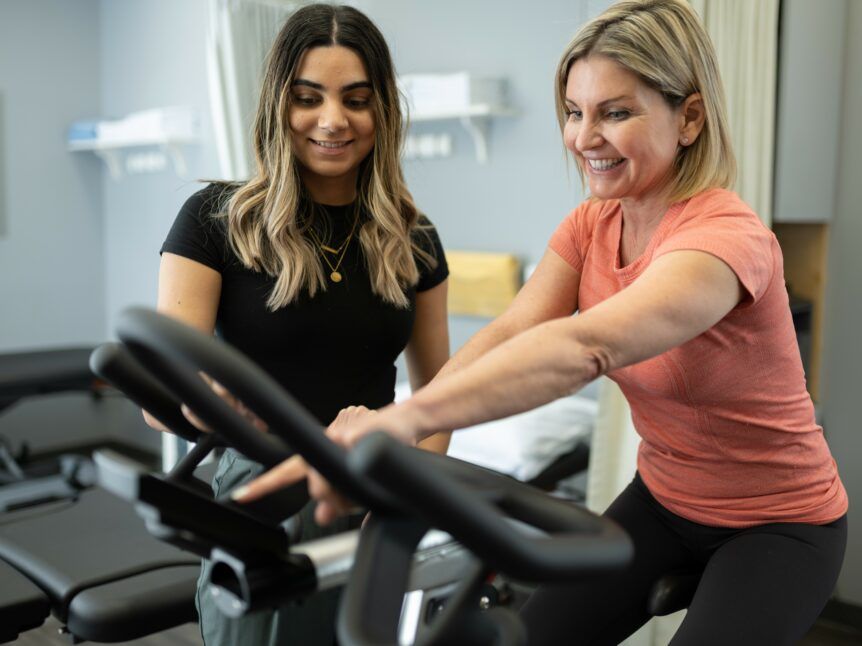How physiotherapy works to do wonders for you

Physiotherapy is often seen as a go-to solution for those experiencing pain, stiffness, or physical discomfort, but the benefits stretch far beyond immediate relief. Whether you’re recovering from an injury, managing a chronic condition, or aiming to enhance your overall mobility, physiotherapy offers a comprehensive approach to improving your health. This blog will take you on a journey to understand how physiotherapy works and how it can do wonders for you. By the end, you’ll have a deeper appreciation for this therapeutic discipline and why it’s essential to seek professional guidance rather than attempt DIY solutions.
Key Takeaways
- Physiotherapy is designed to treat a variety of physical conditions, from acute injuries to long-term health issues.
- It involves a combination of hands-on treatment, exercises, and education to aid in recovery and improve overall function.
- DIY solutions often fall short, making professional physiotherapy essential for long-term health improvements.
How Physiotherapy Works: A Detailed Overview
Understanding Physiotherapy: The Basics
Example: Imagine a runner with recurring knee pain. The physiotherapist won’t just focus on the knee but will also assess the hips, back, and legs to identify any misalignments or imbalances causing the knee to bear extra strain.
This comprehensive approach is key to ensuring long-term recovery and preventing future injury.
How Physiotherapy Works for Specific Conditions
Physiotherapy can address a wide range of conditions, including:
- Sports Injuries: Whether it’s a sprain, strain, or fracture, physiotherapy helps athletes recover faster and prevent re-injury through tailored exercises and strengthening routines.
- Chronic Pain: Conditions like arthritis, fibromyalgia, and lower back pain can greatly benefit from physiotherapy by reducing stiffness and improving mobility.
- Post-Surgical Rehabilitation: After surgeries such as knee or hip replacements, physiotherapy helps patients regain strength and function, getting them back to their normal routines quicker.
Relevant Data: Studies show that physiotherapy reduces the need for pain medication and decreases recovery time for musculoskeletal injuries by an average of 30%. This demonstrates the tangible benefits of professional treatment over a do-it-yourself approach.
Physiotherapy in Practice: What to Expect
Key Elements of Physiotherapy Treatment:
- Manual Therapy: Hands-on techniques to mobilize joints, reduce muscle tension, and improve blood circulation.
- Exercise Therapy: A variety of exercises aimed at improving strength, flexibility, and coordination. These exercises are usually adjusted as you progress.
- Education: Physiotherapists equip patients with the knowledge and tools they need to manage their condition and prevent future injuries. This includes advice on posture, movement habits, and lifestyle changes.
The Broader Implications of Physiotherapy
Insight: While some may believe that a few stretches or exercises found online can substitute for physiotherapy, this mindset overlooks the customized care and professional assessment that only a qualified physiotherapist can provide. DIY treatments can often do more harm than good, as they lack the comprehensive understanding that comes from professional guidance.
Why You Should Avoid DIY Solutions
By choosing physiotherapy, you benefit from:
- Accurate Diagnosis: A thorough assessment ensures you receive the right treatment.
- Tailored Care: Every patient receives a personalized treatment plan.
- Continuous Monitoring: Your progress is tracked, and your treatment is adjusted as needed.
If you’re struggling with sciatica and wondering “how physiotherapy works?”, the answer is a definitive yes. At Motiva Physiotherapy Studio, we are committed to helping you live a healthier, pain-free life with expert physiotherapy care. Wondering what do physiotherapists do to support recovery?
Our skilled team at 7154 120 Street, Surrey, BC V3W 3M8, Canada, will guide you through every phase of healing. Don’t let pain or mobility issues hold you back—call us today at 604-307-8988 to book a consultation and learn how our personalized services can truly transform your recovery.

